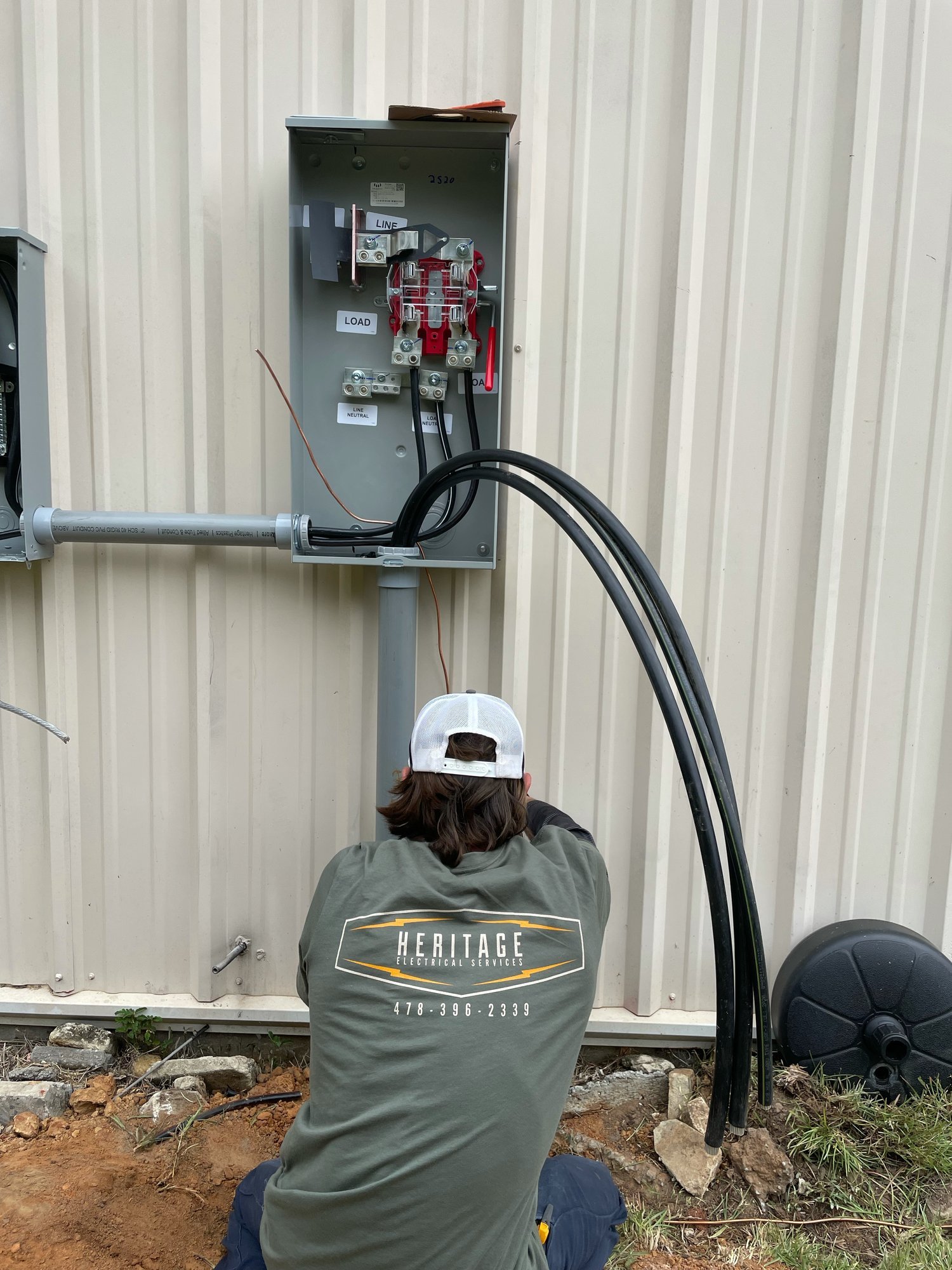Common Electrical Issues in Perry Homes and How to Address Them
Electrical problems in your home can range from minor annoyances to significant safety hazards. For homeowners in Perry, understanding common electrical issues and knowing when to call a professional can help keep your home safe and functional. In this blog post, we'll explore some of the most common electrical problems, when you should contact a licensed electrician, preventive measures to avoid future issues, and how Heritage Electrical Services approaches troubleshooting and repairs.
Identifying Common Electrical Problems
Electrical issues can manifest in various ways, and some are more apparent than others. Here are some of the most common electrical problems homeowners in Perry might encounter:
Flickering Lights: This can be caused by loose wiring, a faulty light fixture, or an overloaded circuit. While it might seem like a minor issue, flickering lights can be a sign of a more serious electrical problem.
Frequent Circuit Breaker Trips: If your circuit breaker trips frequently, it could indicate an overloaded circuit, short circuit, or a ground fault. While resetting the breaker can solve the issue temporarily, frequent trips require further investigation.
Outlets Not Working: Dead outlets are often due to a tripped breaker, a blown fuse, or a faulty outlet. In some cases, it could also indicate a problem with the wiring.
Burning Smell or Scorch Marks: A burning smell or scorch marks around an outlet or switch can indicate an electrical short or a wiring problem. This is a serious issue that requires immediate attention to prevent a potential fire.
Buzzing or Humming Sounds: Unusual noises coming from your electrical panel, outlets, or switches can be a sign of loose wiring, an overloaded circuit, or a failing breaker.
Dimming or Overly Bright Lights: If your lights dim when you turn on an appliance or if some lights are brighter than others, this could be a sign of a voltage issue, which requires professional evaluation.
When to Call a Professional Electrician
While some minor electrical issues can be handled by homeowners, many problems require the expertise of a licensed electrician. Here are some situations where you should definitely call a professional:
Persistent Electrical Issues: If an electrical problem keeps recurring, it’s time to call in an expert. Repeated issues could indicate a deeper problem that needs professional diagnosis and repair.
DIY Gone Wrong: If you’ve attempted to fix an electrical issue on your own and things didn’t go as planned, it’s crucial to have a professional assess and correct the problem to ensure safety.
Electrical Shocks: If you or anyone in your home experiences a shock when plugging in or unplugging an appliance, contact an electrician immediately. Electrical shocks are a sign of serious wiring issues.
Upgrading or Installing New Circuits: Any work involving adding or upgrading electrical circuits should be done by a licensed electrician to ensure it meets local codes and safety standards.
Home Renovations: If you’re renovating your home, it’s essential to have an electrician inspect your current wiring and make any necessary updates to handle increased electrical loads.
Preventive Measures to Avoid Future Issues
Preventive maintenance can go a long way in avoiding electrical problems down the road. Here are some tips to help you prevent issues:
Regular Inspections: Schedule regular electrical inspections to catch potential problems early. An electrician can identify and address issues before they become serious.
Avoid Overloading Circuits: Be mindful of how many devices you plug into a single outlet or circuit. Overloading can lead to overheating and increase the risk of electrical fires.
Replace Damaged Cords and Outlets: Damaged electrical cords and outlets are a fire hazard. Replace them immediately to ensure safety.
Use Surge Protectors: Protect your electronics and appliances from power surges by using surge protectors. This can prevent damage caused by sudden spikes in voltage.
Install Ground Fault Circuit Interrupters (GFCIs): GFCIs are essential in areas where water and electricity are in close proximity, such as kitchens and bathrooms. They help prevent electrical shocks by shutting off power when a fault is detected.
Heritage Electrical Services’ Approach to Troubleshooting
At Heritage Electrical Services, we understand that electrical problems can be stressful and potentially dangerous. That’s why we take a thorough and systematic approach to troubleshooting and repairs:
Comprehensive Assessment: Our electricians begin with a detailed assessment of your electrical system to identify the root cause of the problem. We use advanced diagnostic tools to ensure nothing is overlooked.
Clear Communication: We believe in keeping our clients informed at every step. Once we diagnose the issue, we explain the problem, the proposed solution, and any associated costs before proceeding with repairs.
Safe and Efficient Repairs: Safety is our top priority. We ensure that all repairs are done in accordance with local codes and safety standards. Our team works efficiently to minimize disruption to your daily life.
Preventive Advice: After resolving the issue, we provide advice on how to prevent future problems. Whether it’s upgrading outdated wiring or adding additional circuits, we help you take proactive steps to keep your home safe.
Follow-Up Support: We stand by our work. If you have any concerns after a repair, we’re just a phone call away. We’re committed to ensuring your complete satisfaction with our services.
Electrical issues in your Perry home can range from inconvenient to downright dangerous. By understanding common problems, knowing when to call a professional, and taking preventive measures, you can keep your home safe and functional. If you’re experiencing electrical problems, don’t hesitate to contact Heritage Electrical Services. Our experienced team is ready to help with all your electrical needs, from troubleshooting to repairs and preventive maintenance.

